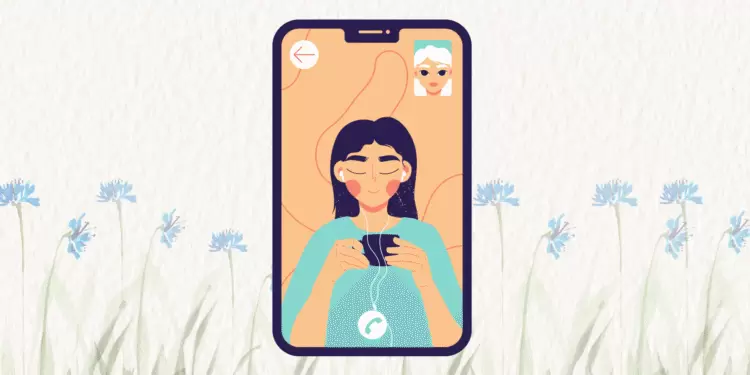For the last three years, 32-year-old Donya has been waking up before sunrise for a video call which heals her soul. Using an unstable WiFi connection and a secondhand phone at exactly 7am, Donya calls her mother in Afghanistan’s Kandahar. Sometimes they speak, other times they simply look at each other and cry.
Donya, her husband, and their four children fled to Quetta after the Taliban returned to power in Afghanistan in 2021, while her mother chose to stay behind.
“She tells me about the sound of drones, the silence of neighbours who have the country, and the constant pain in her knees,” Donya shares, adding “I tell her about my children, about the dreams they still dare to have.”
Despite the distance, Donya continues to send small parcels, warm clothes, painkillers, dried fruit through trusted drivers to her mother. “It’s quite risky, but it’s all I can do to still feel like her daughter,” she remarks.
She trembles while recalling the earlier tough times. “I keep hearing the blasts in my sleep, as if they never stopped,” Donya shares as her eyes start to tear up. “But worse than that is knowing I can never hug my mother again.”
In June 2016, Donya’s husband was among 25 passengers abducted by the Taliban in District Gereshk, Helmand Province while travelling from Kandahar to Herat on the Ahmed Shah Abdul passenger bus. Her brother-in-law, who used to work as a translator for the US forces, was kidnapped by the Taliban during their resurgence. When the family finally located him, he was found to be barely alive, with one of his feet amputated in a blast.
In August 2021, when the Taliban took control, she had no choice but to leave her homeland with a heavy heart, carrying only her identification documents, family pictures, and the trauma of a war which shattered her life.
Near her house, the Taliban had already launched a campaign of abductions, Donya shares. “Buses were stopped, men were dragged out,” she recalls, adding that near her house, the Taliban had abducted over two dozen men from buses near Gereshk.
“The night of our crossing, I couldn’t breathe. I thought I was leaving my soul behind,” Donya shares. Her elderly mother, however, refused to leave Kandahar, saying “I was born here, and I will die here.” Upon which, Donya couldn’t force her anymore.
Now as he lives in a modest two-room rental in Quetta’s Mariabad, Donya is trying to rebuild her life. Her husband works as a labourer in a local centre, while her children, between the ages of four and 13, go to a makeshift learning centre, run by volunteers, for their education. But Donya’s emotional survival continues to hang on a fragile thread of digital connection: her daily calls to her mother.
Donya is one of the thousands of Afghan women living in Pakistan in a legal and emotional limbo. Without refugee status or work permits, many refugees have to rely on informal jobs, community support, and humanitarian aid. It’s, however, the emotional scars that run the deepest.
“Afghan refugee women often carry a triple burden,” says Malik Achakzai, a lecturer and researcher at the University of Balochistan. “They are survivors of war, caretakers of displaced families, and now undocumented migrants facing xenophobia and neglect.” Separation from their loved ones exacerbates their trauma, he adds.
The United Nations High Commissioner for Refugees estimates the presence of at least 1.7 million undocumented Afghan refugees in Pakistan. Many of them, such as Donya, came after the Taliban returned to power in 2021. Pakistan’s shifting policies regarding refugees and occasional mass deportation drives have left them vulnerable.
“Legal invisibility means that these refugees have no identity cards, no official records, and often no voice, says Zarghona, a human rights advocate and lawyer based in Quetta. “Without proper documentation, women such as Donya remain unable to access basic services such as education or healthcare,” she remarked, adding that they continue to live in the shadows while carrying the weight of their families with remarkable strength.
Despite all the hurdles, Donya continues to dream for a bright future for her children. Her youngest child hopes to become a doctor, while her eldest wants to write stories about the land they had to leave behind. As for Donya, she only wishes to visit Kandahar again. “Just once, I want to sit with my mother in the courtyard where I played as a child. Drink tea and talk like we used to. Not over a screen. Not through tears.”
Until then, the calls will continue. Each one a lifeline across a border drawn in fear, but bridged by love.
The story has been edited by Yasal Munim who works as Senior Manager Programs at Media Matters for Democracy.





